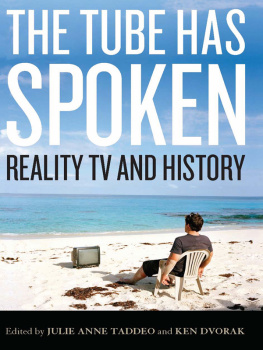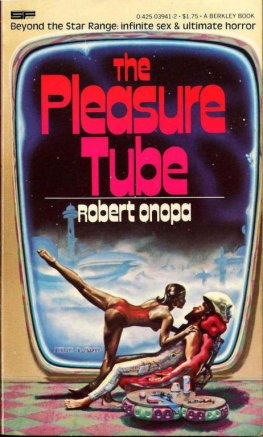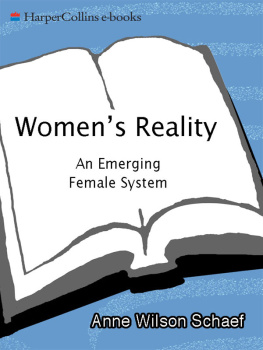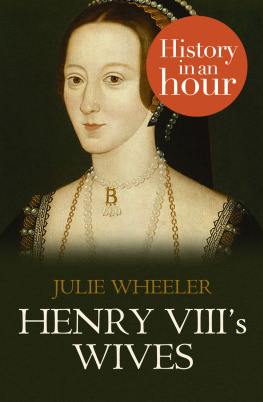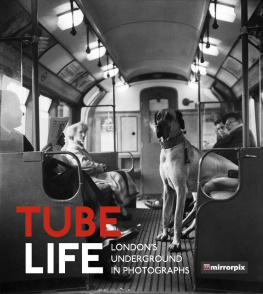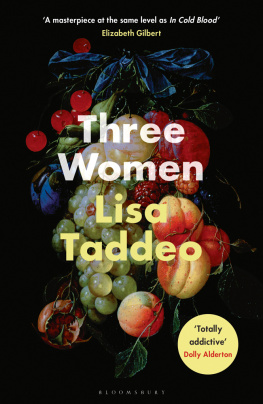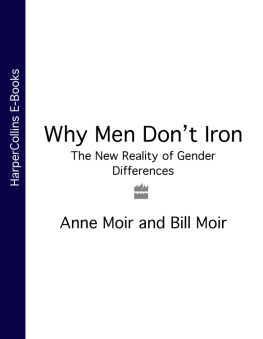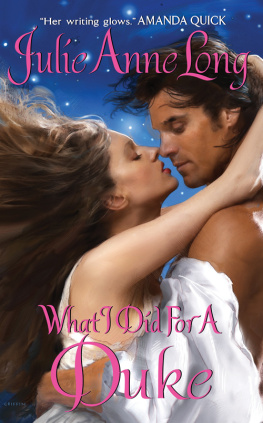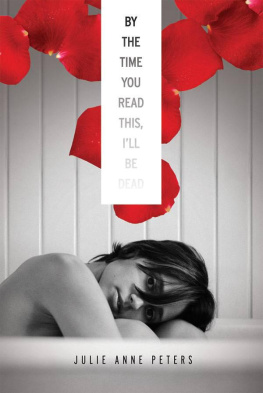Taddeo Julie Anne - The tube has spoken : reality TV & history
Here you can read online Taddeo Julie Anne - The tube has spoken : reality TV & history full text of the book (entire story) in english for free. Download pdf and epub, get meaning, cover and reviews about this ebook. City: Lexington, Ky., year: 2011, publisher: University Press of Kentucky, genre: Detective and thriller. Description of the work, (preface) as well as reviews are available. Best literature library LitArk.com created for fans of good reading and offers a wide selection of genres:
Romance novel
Science fiction
Adventure
Detective
Science
History
Home and family
Prose
Art
Politics
Computer
Non-fiction
Religion
Business
Children
Humor
Choose a favorite category and find really read worthwhile books. Enjoy immersion in the world of imagination, feel the emotions of the characters or learn something new for yourself, make an fascinating discovery.
- Book:The tube has spoken : reality TV & history
- Author:
- Publisher:University Press of Kentucky
- Genre:
- Year:2011
- City:Lexington, Ky.
- Rating:3 / 5
- Favourites:Add to favourites
- Your mark:
- 60
- 1
- 2
- 3
- 4
- 5
The tube has spoken : reality TV & history: summary, description and annotation
We offer to read an annotation, description, summary or preface (depends on what the author of the book "The tube has spoken : reality TV & history" wrote himself). If you haven't found the necessary information about the book — write in the comments, we will try to find it.
The tube has spoken : reality TV & history — read online for free the complete book (whole text) full work
Below is the text of the book, divided by pages. System saving the place of the last page read, allows you to conveniently read the book "The tube has spoken : reality TV & history" online for free, without having to search again every time where you left off. Put a bookmark, and you can go to the page where you finished reading at any time.
Font size:
Interval:
Bookmark:

The Film & History series is devoted to creative scholarly works that focus on how feature films, documentaries, and other forms of media represent and interpret history. Books in the series explore the significant impact of motion pictures on our society and analyze films and television programs from a historical perspective. One goal of the series is to demonstrate how historical inquiry has been reinvigorated by the increased scholarly interest in the intersection of film and history. The Film & History series includes both established and emerging scholars and covers a diverse array of films.
Series Editors
Peter C. Rollins and John E. O'Connor
Copyright 2010 by The University Press of Kentucky
Scholarly publisher for the Commonwealth,
serving Bellarmine University, Berea College, Centre
College of Kentucky, Eastern Kentucky University,
The Filson Historical Society, Georgetown College,
Kentucky Historical Society, Kentucky State University,
Morehead State University, Murray State University,
Northern Kentucky University, Transylvania University,
University of Kentucky, University of Louisville,
and Western Kentucky University.
All rights reserved.
Editorial and Sales Offices: The University Press of Kentucky
663 South Limestone Street, Lexington, Kentucky 40508-4008
www.kentuckypress.com
14 13 12 11 10 5 4 3 2 1
Library of Congress Cataloging-in-Publication Data
The tube has spoken : reality TV and history / edited by Julie Anne Taddeo and Ken Dvorak.
p. cm.(Film & history)
Includes bibliographical references and index.
ISBN 978-0-8131-2553-4 (hardcover : alk. paper)
1. Reality televisionHistory and criticism. 2. Reality television programsSocial aspects. I. Taddeo, Julie Anne. II. Dvorak, Ken, 1950
PN1992.8.R43T83 2009
791.456dc22
2009027966
This book is printed on acid-free recycled paper meeting
the requirements of the American National Standard
for Permanence in Paper for Printed Library Materials.

Manufactured in the United States of America.

Member of the Association of
American University Presses
Reality TV continues to grow in popularity as television programming that offers real, albeit edited and scripted, experiences before the handheld camera and proliferates to include children (Kid Nation) and animals (Pet Psychic). With roots in documentary film, originally used for education or persuasion, and television news, including heart-wrenching human-interest stories, reality TV has both expanded and blurred definitions of broadcast content and, some would argue, standards of acceptable conduct. Although television is an influential visual medium, much of the attraction of reality TV relies on backstory. The narratives often attract sympathy or create empathy. Room makeovers on shows like Deserving Design, Trading Spaces, and Designed to Sell include stories of personal self-sacrifice, feuding siblings, and expectant couples. A Baby Story takes the viewer into the delivery room. These narratives connect with shared realities, as if they were Life and Look magazine photos put into motion to tell the touching tales in every detail.
Other shows rely less on heartwarming narratives and more on voyeurism and vicarious experiences. Although Survivor and The Amazing Race take armchair travelers around the globe, backstories and backstabbing provide the entertainment. Julie Chen, the steamy host of Big Brother, welcomes another gaggle of exhibitionistic houseguests to the compound, where their sleazy psychodramas are sure to remedy any self-esteem issues you may be having after watching the tenth season.calling in not only to buy products, but also to explain the joy of shopping. Nancy Grace on CNN uses caller commentary to explicate current events, usually a news story of a sensational kidnapping or murder.
Daytime programming appears to target women, whereas prime-time offerings aim for mixed audiences, yet the many online sites announcing auditions for reality TV seek far more young women than men. Some of those casting calls include:
Are you a beautiful, young woman in her 20s who knows what she wants? A rich, older man who can give you all the things you deserve clothes, cars, money, jewelry, trips. Do you stop at nothing to find your Sugar Daddy? We want to meet you!
Major cable network now casting attractive, fun, outgoing recently divorced women.
Looking for attractive female MMA fighters between the ages of 18 and 28 to interview for a TV pilot pitch.
Surely if these shows make it to the airwaves, there will be some enticing backstories to examine.
Reality TV asks questions of gender, race, ethnicity, and socioeconomic status as played out on the smaller screen, and it offers historians and those in film or cultural studies some complex areas of study. This volume tackles many of the complexities of reality TV, setting high standards for future exploration. By looking to early network shows like Candid Camera, as well as PBS productions such as An American Family, scholarship can begin to examine the metamorphosis of television from its own backstory to current programming. We can begin to understand the tales being told about cultural perceptions and historical dynamics through the study of reality TV in all its manifestations, from baby stories to babes, from man against nature to man versus woman, from home improvement to improving life at home. And, finally, what might the future be for reality TV? How will television programming intersect with YouTube or MySpace? And what will the coming changes reveal about how we tell our stories or how we are told about our history and culture? Thankfully, there are scholars equal to the challenge of searching for answers to these important questions.
DEBORAH A. CARMICHAEL
MICHIGAN STATE UNIVERSITY
.
, one of many such Web sites.
Life often takes you in directions you least expect, and this is true of my relationship with my coeditor, Julie Anne Taddeo, with whom I first discussed this project during a telephone call in 2002. She inquired about my call for papers distributed on H-Net for a proposed anthology on the PBS historical Homes series. Julie, a British historian steeped in Victorian texts, gravitated toward classy productions such as 1940s House and Manor House, whereas I, a fan of the western and cowboy boots, wanted to compare such tame British fare to PBS's Frontier House and Texas Ranch House. Working together as coauthors and coeditors, we discovered that such programs were not simply a guilty pleasure for us as viewers, but another valuable resource for understanding the complex relationship among history, myth, and current social and political concerns.
Since that phone call, Julie and I have guest-edited two issues of Film & History devoted to scholarship on reality TV and history. Throughout this process we have been encouraged and supported by Peter C. Rollins and John E. O'Connor, who pushed us to look at all angles of this genre: as a tool for teaching and learning about history, as an experiment in documentary and film, and as a way to measure the pulse of contemporary society in the United States and other Western nations. We are honored with their friendship; they are true mentors for so many of us fascinated with the study of film and television and its cultural influence on our global society.
Font size:
Interval:
Bookmark:
Similar books «The tube has spoken : reality TV & history»
Look at similar books to The tube has spoken : reality TV & history. We have selected literature similar in name and meaning in the hope of providing readers with more options to find new, interesting, not yet read works.
Discussion, reviews of the book The tube has spoken : reality TV & history and just readers' own opinions. Leave your comments, write what you think about the work, its meaning or the main characters. Specify what exactly you liked and what you didn't like, and why you think so.

